St. Jude Family of Websites
Explore our cutting edge research, world-class patient care, career opportunities and more.
St. Jude Children's Research Hospital Home

- Fundraising
St. Jude Family of Websites
Explore our cutting edge research, world-class patient care, career opportunities and more.
St. Jude Children's Research Hospital Home

- Fundraising
Human Performance Lab
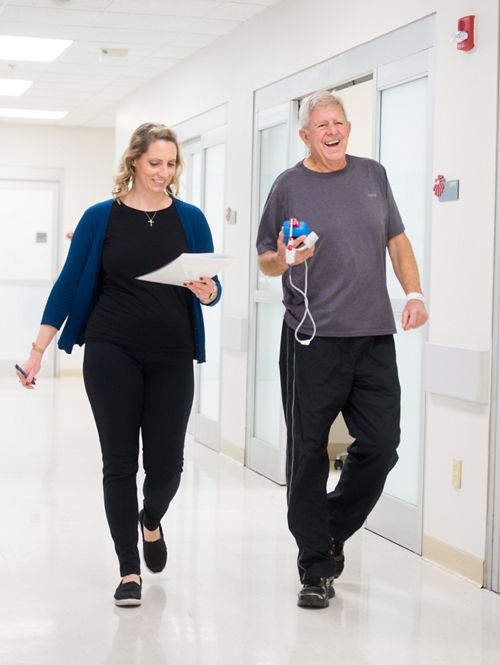
The Human Performance Laboratory at St. Jude Children’s Research Hospital evaluates physical function for long-term survivors of childhood cancer as part of the St. Jude LIFE study.
We most commonly assess survivors diagnosed with leukemia, lymphoma, and brain tumors, but our facility also evaluates survivors diagnosed with other types of cancer. In addition to our performance assessments of childhood cancer survivors, we conduct physical performance evaluations for pediatric patients receiving treatment for brain tumors, leukemia, lymphoma, solid tumors, sickle cell anemia, and neurological diseases. These evaluations occur at various time points throughout treatment and early remission.
Beyond assessments, we are able to perform interventions, including total-body vibration and in-person and virtual-exercise interventions, for on-therapy patients and survivors.
Our patient populations encompass all types of childhood cancer and other catastrophic diseases, range in age from 18 months to 70+ years, and cover a diagnostic span that ranges from newly diagnosed to 50+ years of survivorship. Approximately 50 patients participate in research testing each week at our state-of-the-art facility.
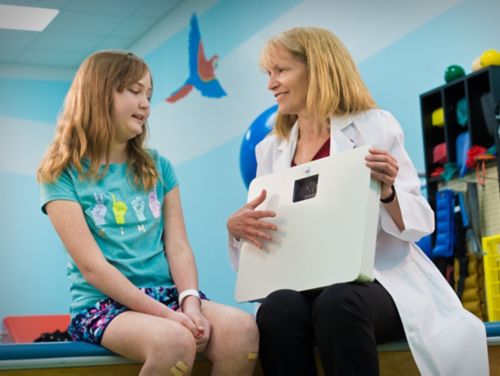
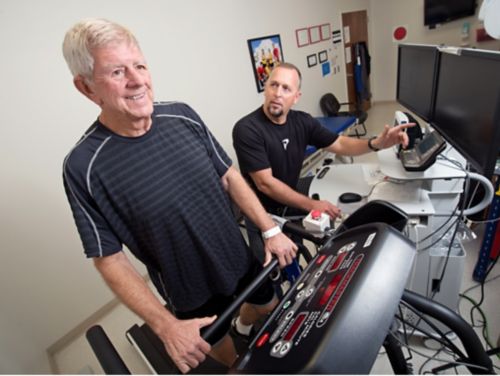
Facility and equipment
The Human Performance Laboratory occupies approximately 1100 square feet in the Patient Care Center. Our facility is staffed with certified clinical exercise physiologists and one physical therapist.
Beyond our expansive facility and experienced staff, the Human Performance Lab is equipped with advanced equipment. Some of the equipment in our facility consists of
- two MGC Diagnostics Ultima CPX metabolic stress test systems, complete with two treadmills
- one adult cycle ergometer
- one pediatric cycle ergometer
- one arm ergometer.
We perform maximal graded-exercise testing to determine fitness levels (maximal oxygen uptake, peak VO2). We also assess resting energy expenditure for some research protocols.
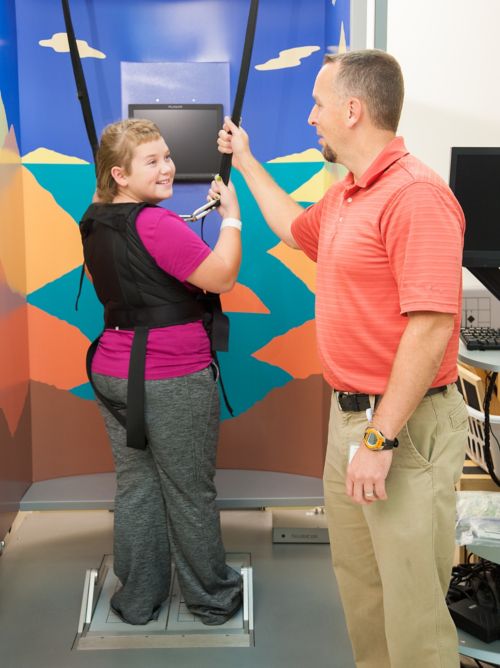
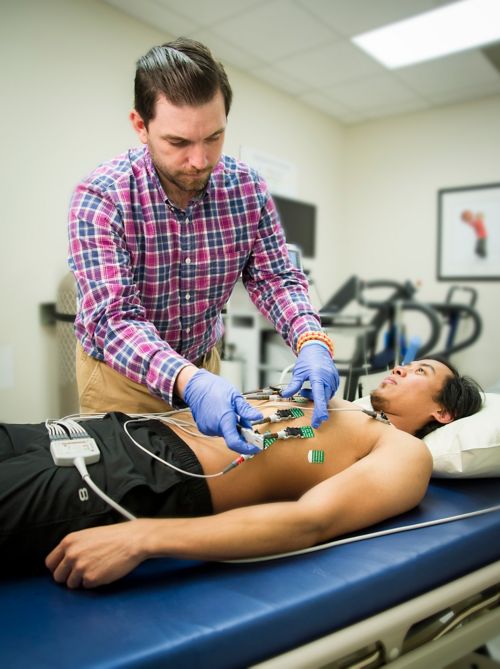
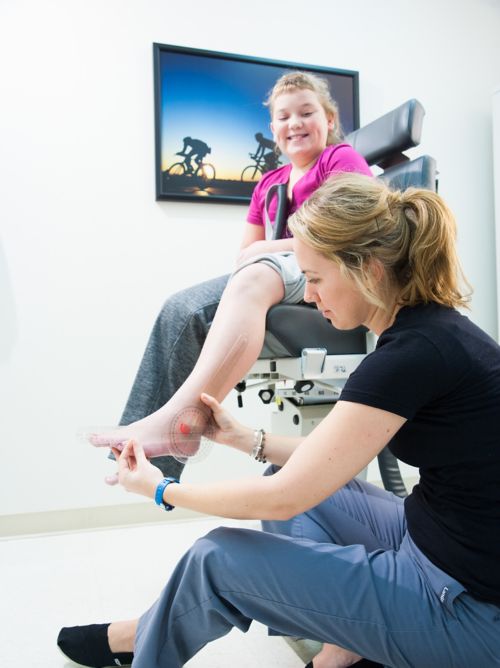
Muscular strength and endurance are tested with two Biodex System 4 Pro Isokinetic Strength Testing Systems. The Biodex systems can accommodate patients of all ages and sizes, and measure isokinetic, isometric, and isotonic strength. Speeds of movement, resistance, or limb positioning are modified depending on the needs of the research protocol.
We assess a patient’s or survivor’s balance with two Bertec Computerized Dynamic Posturography systems. We test the ability of the individual to maintain an upright position while responding to a variety of inputs to the eyes, the inner ear, and the sensory organs of the legs and feet.
Other types of available equipment include handheld dynamometry, myometry, range of motion, flexibility, and sensory-testing equipment. Our staff also assess patients for activities of daily living and fine- and gross-motor tasks.
Meet the team

Leadership
-
View Details
Kirsten K. Ness, PT, PhD, FAPTA
Member, St. Jude Faculty
Principal Investigator, Human Performance Lab
Co-Leader, Cancer Control and Survivorship Program
Endowed Chair in Cancer Survivorship
Kirsten K. Ness, PT, PhD, FAPTA
Member, St. Jude Faculty
Principal Investigator, Human Performance Lab
Co-Leader, Cancer Control and Survivorship Program
Endowed Chair in Cancer Survivorship
Affiliations
Research Interests
- Clinical and population measurement of physical performance and disability
- Exercise, physical activity and dietary intervention to prevent and remediate frail health
- Accelerated aging in cancer survivors
- Analysis of epidemiologic data
- Cardiac rehabilitation
Contact Information
Kirsten K. Ness, PT, PhD, FAPTA
Epidemiology and Cancer Control
MS 735
St. Jude Children's Research Hospital
262 Danny Thomas Place
Memphis, TN 38105-3678
Staff
-
View Details
CJ Blume, BS, CEP
Clinical Evaluator I – Exercise Physiologist
-
View Details
John Chase, BS, CEP
Clinical Evaluator I – Exercise Physiologist
-
View Details
Angela Corcoran, MS, CEP
Clinical Evaluator II – Exercise Physiologist
-
View Details
Ashley McNickle, MS, CEP
Sr. Clinical Evaluator – Exercise Physiologist
Contact Information
Ashley McNickle, MS, CEP
Epidemiology & Cancer Control
St. Jude Childen's Research Hospital
262 Danny Thomas Place
Memphis, TN 38105-3678
-
View Details
Sean T. O'Neil, MA, RCEP
Manager, Human Performance Lab
Contact Information
Sean T. O'Neil, MA, RCEP
St. Jude Children's Research Hospital
262 Danny Thomas Place
Memphis, TN 38105-3678
-
View Details
Robyn Partin, MS, MPH, CEP, CCRP
Director of Operations, Human Performance and Movement
Robyn Partin, MS, MPH, CEP, CCRP
Director of Operations, Human Performance and Movement
Contact Information
Robyn Partin, MS, MPH, CEP, CCRP
St. Jude Children's Research Hospital
262 Danny Thomas Place
Memphis, TN 38105-3678
-
View Details
Kayla Payne, MS, CEP
Clinical Evaluator II – Exercise Physiologist
-
View Details
Fatima Pedroza, MS
Clinical Evaluator I – Exercise Physiologist
-
View Details
Nicole Svendsen, MS, CEP
Sr. Clinical Evaluator – Exercise Physiologist
Student internships
Full time undergraduate and graduate internships are available in the Human Performance Lab in the spring, summer, and fall semesters for Exercise Science, Exercise Physiology, or Kinesiology majors (or equivalent).
Internship hour requirements are dependent upon the requirements of the student’s university. Internships are full time (40 hours per week) and cannot be part time. You will learn how to perform physical function assessments on childhood cancer survivors and complete research projects.
In order to apply for an internship in the Human Performance Lab, the following application and supporting documents (listed in application) must be submitted to HPLInternships@stjude.org.
- Academic transcript from all collegiate institutions you have attended.
- Please submit first and ASAP, as we do have academic standards for placement in our internship program.
| Spring | Summer | Fall | |
|---|---|---|---|
| Application due* | September 30 | February 28 | April 30 |
| Remote interview | October 25 | March 25 | May 25 |
| Acceptance Notification | October 31 | March 31 | May 31 |
| *Including all supporting documents | |||



















